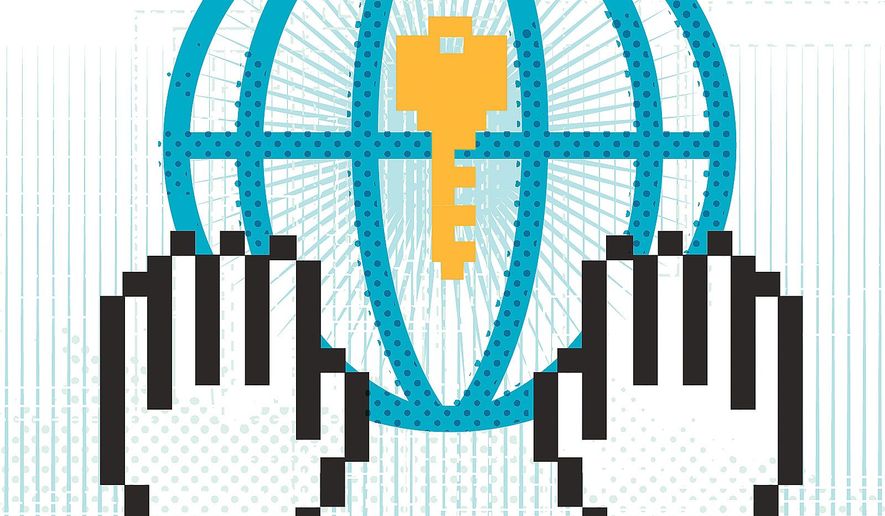OPINION:
Do you remember the last time you had an issue with your internet connection and the federal government cheerfully helped you resolve it? Me neither. Yet the same federal government who spent $2 billion on a website that was more likely to dish out electric shocks than work properly is now literally in control of our nation’s internet, under the false rubric of promoting “net neutrality.”
Since 1996, the internet had been designated as “information services” and left unregulated. But under the Obama administration’s 2015 FCC order, the internet was redefined as a “common carrier,” putting it under the thumb of Title II of the 1934 Communications Act, the Depression-era law that kept our nation’s telegraphs and rotary phones humming.
The core concepts of true net neutrality are simple. They include no blocking of information or resources, no intentional slowing or reduction in available bandwidth, no “pay to play” allocation of higher speeds, and protection of consumers’ online privacy. There’s broad agreement on these principles, the crucial difference is how we enforce them.
The open, fair, and innovative internet we’ve all come to rely on got where it is today through market forces, not government oversight and regulation. It was consumers who sorted out the winners (Facebook, Mozilla, Google) from the losers (MySpace, Netscape, Pets.com) and that’s exactly as it should be. The internet has worked because it remained largely a democratic free-market, unsullied by an overarching government scheme.
The internet now will be dripping with government scheme, as Title II regulates internet providers as it would a monopolistic utility from 80 years ago. Government’s heavy hand is already wreaking damage by throttling the investments which help fuel the engine of innovation. Since the Title II order went into effect, investment in broadband has gone down each quarter — a first. This has led to providers having to slow expansion, upgrades, and new services for their customers, reversing the trend of the internet giving us more content, better service, faster speeds, at less cost.
Consumers lose with government regulating the internet like a utility, but big content providers like Google, Facebook and Netflix love it because they win no matter what rules the government imposes on our modems or local internet providers. Title II limits its regulations to service, not content, seemingly oblivious to the reality that content relies entirely on broadband infrastructure and service technology.
Before the FCC chose to butt-in, the FTC capably protected consumers from unfair competition and deceptive practices. They successfully took multiple companies, including Google, to court for various transgressions. There is no reason why this enforcement mechanism cannot continue to serve consumer interests.
With new technologies on the horizon that will provide unprecedented speeds, processing power, and opportunities for innovation, it is critical that we return to a free-market framework of limited regulation which allowed the internet to become the powerful tool of innovation and economic transformation it is today. Repealing the current stifling rules will unleash a flood of online investment, experimentation, and innovation.
Grave concern over the government regulating the internet is even shared by the very person who coined the term “net neutrality,” law professor Tim Wu, who worries that the FCC’s present rules gives government the power to shape “media policy, social policy, oversight of the political process, [and] issues free speech.” That is a frightening amount of power for the government to have, especially given their recent record of wholesale privacy violations.
FCC Chairman Ajit Pai has made it a priority to establish a policy framework that protects both consumers and the future of the internet. The key rests with Congress, who ought to work with Chairman Pai to see this vision become reality and endure as administrations come and go. Over time, the concerns about net neutrality, security, privacy, and free and fair competition will only grow more urgent. Now is the time to put workable rules in place that will definitively protect the interests of consumers and make sure the internet remains open to everyone.
• Gerard Scimeca, a lawyer, is vice president of CASE, Consumer Action for a Strong Economy, based in Arlington, Virginia.




Please read our comment policy before commenting.